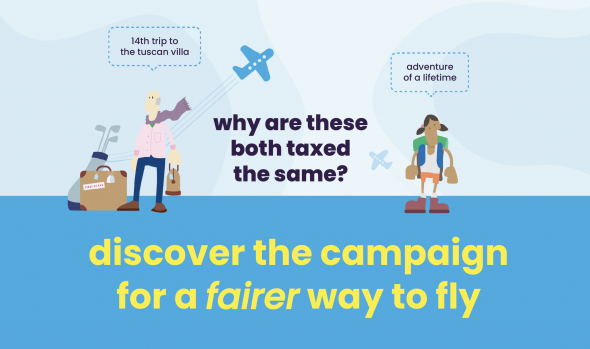NEWSLETTER
In Conversation: Holly Boyd-Boland, Virgin Atlantic


Airline leaders often talk about aviation accounting for 2-3% of global emissions, as a way of showing that they are not the biggest polluters.
While that is true, that 2-3% figure is arguably a little misleading when you look at it on a country by country basis.
In a major industrialised country such as the UK for example, aviation in fact accounts for 7% of emissions.
Now, climate think tank, The Climate Change Committee (CCC), is saying that aviation can’t increase much further if the UK wants to reach its net zero target.
This comes as climate charity Possible found that all but one of the 50 sustainability targets set by the industry since 2000, had either been missed or revised, at the same time as the industry was growing (and accounting for more emissions).
For example, the charity says that in 2007, Virgin Atlantic set a target of a 30% reduction in CO2 per revenue tonne kilometre (CO2/RTK) by 2020. In 2020, this was then revised to a new target of 15% gross reduction in CO2/RTK by 2026.
The perception of constant growth and little action when it comes to sustainability is leading to the so-called frequent flyer tax being raised again by climate change campaigners.
Possible, which commissioned the report, is for example behind another campaign called “A Free Ride.”
The idea here is that everyone gets one carbon tax free flight a year (e.g. to go on vacation or see family), and then carbon taxes get progressively higher for each extra flight you take.
As the statistics show, most people are not frequent flyers (70% of flights from the UK are taken by 15%), and so this idea could seem reasonable to a lot of voters. Yet, at the same time, frequent flyers are of course a crucial revenue source for airlines.
As a result, to avoid something like a ‘frequent flyer tax’ being introduced in major industrialised countries, the industry will need to stick to what it says it will do.
There’s ever more focus on sustainable travel, and the industry risks a major credibility and reputation problem, if impressive sounding statements about decarbonization aren’t followed through with concrete action, and targets which are kept or even exceeded.
SimpliFlying CEO Shashank Nigam writes:
Is Hydrogen the knight in the shining armour that will get aviation to net-zero? I interviewed John-Paul Clarke, Co-Founder of Universal Hydrogen. We *geeked out* over the multiple details in the new podcast. In fact, John-Paul mentored Paul Eremenko at MIT!
It’s not often you get to hear an academic-turned-entrepreneur discuss a technology (or a gas!) in depth. Hydrogen has its issues, but Universal Hydrogen is thinking hard about solving them. Storage and transfer technologies make hydrogen a feasible medium-term solution for airlines getting to net zero.
They’ve also started to hire some industry stalwarts like Rod Williams to build the momentum.
Have a listen and let me know what you think!
Positive story of the day
SAUDIA Operates the World’s Longest Net-positive Flight, Powered by Carbonclick (Saudia)
Japan Airlines’ Kiyoto Morioka is focused on the future of sustainable travel (Boom Supersonic)
Inspiring happiness: Fiji Tourism’s two-year plan for a sustainable future (Karryon)
United is the first U.S. airline to purchase sustainable aviation fuel overseas (Fast Company)
Airlines want fry oil to fuel planes, but finding enough is a challenge (Dallas Morning News)
The sustainability chiefs leading the airline industry’s net-zero charge (Flight Global)
Turkish Airlines Highlights Sustainability Initiatives at ATM 2022 (Aviation Pros)
Etihad introduces new sustainability-driven economy experience (Future Travel Experience)
© 2022 SimpliFlying Pte. Ltd.